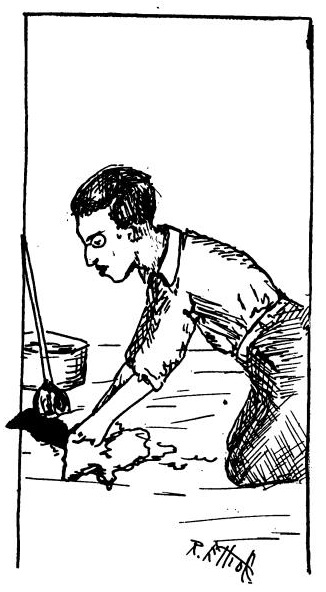University administrators are facing new challenges as they continue to take preventative measures against COVID-19, the new coronavirus.
While epidemics in the past have affected Abilene and the university, they have never resulted in the closure of the Abilene campus in the modern era.
The Spanish influenza outbreak of 1918 and the polio outbreak of the early 1950s instilled fear in many Abilene citizens as infections spread, notes Dr. Charlie Marler, professor emeritus of journalism and mass communication and Optimist advisor from 1974-96. He said the Spanish influenza was possibly the largest epidemic to affect Abilene citizens prior to the coronavirus.
In fact, one student, an 18-year-old resident of Zellner Hall from the Central Texas town of Penelope, died of the Spanish influenza in 1918.
“The 1919 Prickly Pear had a tribute to her, just a few words: ‘the richest toll of the Spanish influenza,’” Marler said. “Abilene had more than 20 deaths. It had about a 10,000 population then, and about a third of the city had the Spanish flu, but that was the only death related to the ACU community that I know of.”
An Abilene Daily Reporter article published on Oct. 9, 1918, said, “The executive [influenza] committee passed a resolution calling on all schools, picture shows, churches and other public gatherings to forego their meetings until further notice.” It was unclear how extensive this advice was followed and for how long.
During the current crisis, many local churches have followed this example and have started livestreaming their services to encourage their members to stay in their homes. In addition to ACU, McMurry and Hardin-Simmons universities have moved to online learning, and the Abilene and Wylie school districts are developing distance learning programs to keep students, faculty and staff healthy.
Universities across Abilene, Texas and the nation are essentially creating the emergency policies and procedures for any future serious outbreaks.
“There’s really not much evidence of how it [the epidemic] was handled in 1918,” Marler said.
The polio outbreak of the early 1950s caused the death of an Abilene Christian College student in 1951. An Optimist article published on Sept. 14, 1951, states “Bobby George Oliver, 20, of Tahoka, an ACC senior, died August 30 in a Plainview hospital of bulbar polio.”
The polio epidemic was handled differently than the outbreaks before it.
“There was a lot of fear but it was not as widespread in terms of the number of people who got it,” Marler said.
In more recent history, the university dealt with the spread of the H1N1 swine flu. According to an Optimist article published in October 2009, the ACU Medical Clinic administered the last seasonal flu vaccine in its possession after giving more than four times its usual number throughout the season.
Current administrators have never faced issues of this magnitude. The appropriate response changes with the spread of the virus, making it difficult to establish a plan more than a few hours or days ahead.


